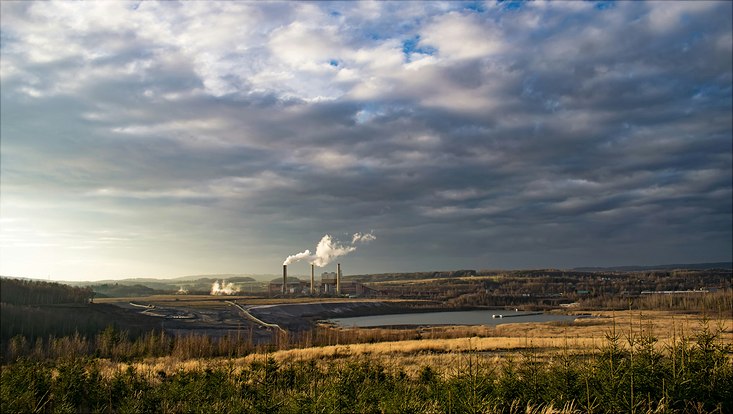and Society (CLICCS)
The Timing of CO2 Emissions Matters for Surface Warming
20 August 2024

Photo: Michal Pech/Unsplash
When it comes to studying climate change, we generally assume that the total amount of carbon emissions determines how much the planet will warm. This also defines the basis for mitigation strategies. But a new study published in PLOS One suggests that not only the amount, but also the timing of those emissions controls the amount of surface warming that occurs on human time-scale.
Current strategies to keep surface warming below certain thresholds, 1.5 or 2°C, rely on the idea to only limit the total amount of anthropogenic greenhouse gas emissions. This assumption is based on a near-linear relationship between cumulative emissions and warming, that emerges from the balancing of non-linear interactions in the physical and biogeochemical Earth system. This relationship between carbon emissions and surface warming is repeatedly assessed with high confidence by the Intergovernmental Panel on Climate Change (IPCC).
However, the new study, led by Alexander Winkler, group leader at the Max Planck Institute for Biogeochemistry, suggests that this proportionality is not as clear-cut as previously thought. The research team from the Max Planck Institutes for Biogeochemistry and Meteorology, and Boston University, analysed specially designed simulations with an improved Earth system model. This model overcomes previously applied simplifications, which were primarily connected to land ecosystems. These simulations are idealised and distribute the same amount of total carbon along different emission trajectories of the same duration starting from the same pre-industrial conditions. They reveal that the timing of emissions significantly impacts atmospheric CO2 levels and subsequent warming on a centennial timescale. If emissions occur earlier, the resulting atmospheric CO2 concentration can be up to 37 percent lower. This leads to a surface warming reduction of up to 0.3°C, and nearly 0.5°C over land. All for the same amount of carbon emissions equivalent to the IPCC 2°C global warming carbon budget (~ 1200 gigatons of carbon). While these idealized simulations cannot directly inform mitigation strategies, they underscore the critical role of non-linearities in the Earth system's response to the timing of carbon emissions.
According to first author Winkler, "The timing of CO2 emissions matters, especially for global ecosystems. Ecosystems respond to climatic changes triggered by emissions, for example, through a pole-ward shift of the tree-line in response to warming. But it takes decades for trees to grow and absorb CO2 from the atmosphere, so we need to take those slow responses into account when predicting future climate changes."
Victor Brovkin, group leader at the Max Planck Institute for Meteorology and co-author of the study, adds: "While our new findings do not fundamentally invalidate the established quantification of carbon budgets and related climate warming goals, they do highlight additional uncertainties tied to overlooked dynamics in the carbon-cycle-climate system, and they underscore the need for better understanding of global ecosystems and their evolution over time."
The new study highlights the slow and delayed responses of the carbon cycle to emissions. It provides a fresh perspective on the complex relationship between carbon emissions and global warming – which is crucial for understanding and predicting future climate change.
More Information
Dr. Alexander J. Winkler is a former CLICCS postdoc and is now a group leader at the Max-Planck-Institute for Biogeochemistry.
This article was published first by the Max-Planck-Institute for Biogeochemistry. Here you can find the original article.
Original publication
Winkler A, Myneni R, Reimers C, Reichstein M, Brovkin V (2024): Carbon system state determines warming potential of emissions. PLOS ONE; DOI: 10.1371/journal.pone.0306128.
Contact
Dr. Alexander J. Winkler
Hans-Knöll-Straße 10
07745 Jena
Room B.3.005
Phone: +49 (0) 3641 57 8923
E-Mail: awinkler"AT"bgc-jena.mpg.de


